#kidney transplant
Text
"For the first time, genetically modified pig kidneys provided “life-sustaining kidney function” during the course of a planned seven-day clinical study—a first step in addressing the critical crisis worldwide of kidney donor organ shortage.
The University of Alabama’s pre-clinical human study at Birmingham also advances the science and promise of xenotransplantation as a therapy to potentially cure end-stage kidney disease—just as a human-to-human transplants can.
“It has been truly extraordinary to see the first-ever preclinical demonstration that appropriately modified pig kidneys can provide normal, life-sustaining kidney function in a human safely and be achieved using a standard immunosuppression regimen,” said UAB transplant surgeon scientist Jayme Locke, M.D., director of UAB’s Comprehensive Transplant Institute and lead author of the paper...
The peer-reviewed findings published last month in JAMA Surgery describes the pioneering pre-clinical human research performed on a recipient experiencing brain death...
The pre-clinical human brain death model developed at UAB can evaluate the safety and feasibility of pig-to-human kidney xenografts, or transplants, without risk to a living human. It is named for transplant pioneer Jim Parsons, an organ donor whose family generously donated his body to advance xenotransplant kidney research, like the latest patient did.
A Critical Need
Kidney disease kills more people each year than breast or prostate cancer, while more than 90,000 people are on the transplant waiting list. More than 800,000 Americans are living with kidney failure and 240 Americans on dialysis die every day. The wait for a deceased donor kidney can be as long as five to 10 years, and almost 5,000 people per year die waiting for a kidney transplant.
Groundbreaking Study Details
The 52-year-old study subject for this research lived with hypertension and stage 2 chronic kidney disease, which affects more than one in seven U.S. adults, or an estimated 37 million Americans. As part of this study, the subject had both of his native kidneys removed and dialysis stopped, followed by a crossmatch-compatible xenotransplant with two 10 gene-edited pig kidneys, or UKidney.
The transplanted pig kidneys made urine within four minutes of re-perfusion and produced more than 37 liters of urine in the first 24 hours. The pig kidneys continued to function as they would in a living human for the entirety of the seven-day study. Also, the kidneys were still viable at the time the study was concluded.
“In the first 24 hours these kidneys made over 37 liters of urine,” said Dr. Locke. “It was really a remarkable thing to see.” ...
Gene editing in pigs to reduce immune rejection has made organ transplants from pigs to humans possible. The natural lifespan of a pig is 30 years, they are easily bred, and they have organs of similar size to humans. Genetically modified pig kidneys have been extensively tested in non-human primates, and the addition of UAB’s preclinical human research model—the Parsons Model—now provides important information about the safety and efficacy of kidneys in human transplant recipients."
-via Good News Network, September 17, 2023
#organ donation#organ donor#organ transplant#medical news#medical research#pigs#kidney transplant#kidney diseases#dialysis#good news#hope#hope posting#human biology
545 notes
·
View notes
Text
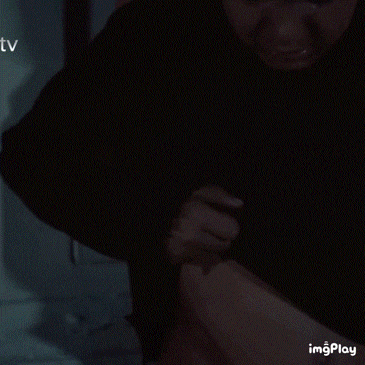






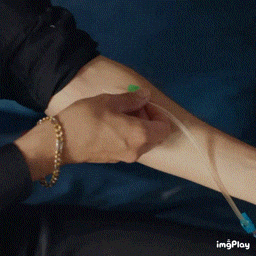














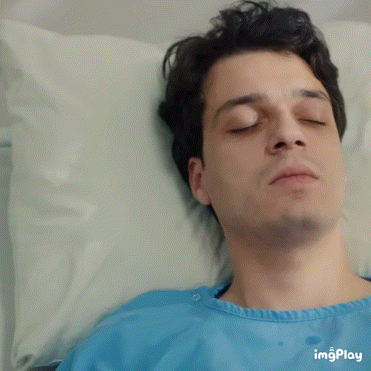

ateş kuşları From episode 22 to 27
This feisty character is Kara. He will make you laugh sometimes and sad sometimes because of his story. His brothers left him for organ dealers when he was young. They stole his kidney and tortured him until his other kidney failed. He returns to take revenge on his brothers because they abandoned him, but he lives his last days refusing to accept any kidney transplant, but in the end he collapses and wakes up to discover that his older brother has donated his kidney to him, but he is angry because it was done without his permission. But it was his wife who allowed it.
#whump#turkish series#worry#painful#wound#collapse#kidney failure#kidney transplant#kidney#surgery#turkish dizis#ateş kuşları
99 notes
·
View notes
Text
Artificial kidneys for people with kidney failure may be closer than we think
More than 500k people in the US require dialysis every week due to kidney failure. Some of those people are able to receive organ transplants, but the waiting list is incredibly long and only about 20k people receive transplants every year. On top of that, a person's body can reject the transplanted organ, and even if it is successful the patient will have to take immunosuppressant drugs for the rest of their life.
However, scientists at the University of California San Francisco hope that can be changed. They have created a bioreactor, a sort of artificial organ that can safely perform the functions of a kidney. It is connected directly to the blood vessels and veins, allowing passage of nutrients and oxygen like the actual kidney would. This bioreactor was tested using a type of kidney cell called a proximal tubule cell, which regulates water. These cells are encased in a silicon membrane with nanopores, which allows the cells to do their job while preventing the body's immune system from identifying and attacking them. These bioreactors were tested in pigs, and after a week the animals experienced no ill effects or rejection.
The next steps will be expanding to month long trials, and including more different kinds of cells in the reactor to perform more of the kidney's functions. Though this technology is still far from being perfected, this is a huge step in the direction of treating kidney disease far more easily and effectively!
#science#stem#science side of tumblr#stemblr#biology#biochemistry#studyblr#medicine#health#healthcare#kidney transplant#kidney diseases
75 notes
·
View notes
Text
#science#medicine#medical research#medical advances#pig kidney#kidney transplant#organ transplant#xenotransplantation
20 notes
·
View notes
Text
I don't normally post personal stuff on here, but I'm a dialysis patient and have been waiting for a Transplant for 5 years now and tonight I got the call for a kidney and have to be at the hospital by midnight. So any positive vibes and thoughts and prayers you guys could send me I'd really appreciate it.

#bang chan#skz stay#stray kids#lee know#changbin#hyunjin#han jisung#lee felix#seungmin#jeongin#kidney disease#kidney transplant
27 notes
·
View notes
Text
It's National Kidney Month! Did you know:
Over 80,000 people in the USA alone need kidney transplants.
The average wait time for a kidney transplant is five years on dialysis.
Kidney donors actually have a lower risk of kidney disease, and a higher life expectancy, than the general population.
Donating a kidney can extend the recipient's life by 20-40 years!
Kidney donation is actually one of the "easier" surgeries, with most people only spending one night at the hospital.
In most countries it costs no money to donate a kidney, and in the USA you can get compensation for lost wages while recovering from surgery.
You don't need to know someone who needs a kidney before you donate one. In fact, these "non-directed donors" often enable the transplant waitlist to create donation chains, in which multiple people receive kidneys!
Registering as an organ donor means you could even donate an organ after you die, without needing to do anything while you're alive.
If you want to learn more, check out the National Kidney Registry, or you can read about my personal experience on this blog. Or, if kidney donation isn't right for you, there are other ways you can help folks with kidney disease!
11 notes
·
View notes
Text

I did it! One of the youngest people ever to get a kidney AUTO transplant! A very rare surgery for a very rare disease. I was the only young teenager in the entire transplant ward. Performing surgery on me was a dangerous task because I needed blood transfusions and am very small. But I still remember waking up from the procedure and thinking: "dang bro, what just happened?" seeing the scar and being shocked at how big the cut is Anyways I have a new DTIYS for you guys if you'd like to participate! No pressure but I will be making an art comp with the drawings of whoever decides to participate in the DTIYS ^_^ You can remake my drawing above in your style if you'd like! :) All entrants will be supporting the cause to spread awareness for rare conditions like mine.
#myart#sonicthehedgehog#fanart#sega#milestailsprower#ibispaintx#tails the fox#miles tails prower#tails fanart#sonic and tails#superhero#kidney transplant#tw surgery#cute fanart#comfort character
10 notes
·
View notes
Text

Snap and ig @siennawiltshire - me, my dialysis arm and my transplant scar. A work of art.
17 notes
·
View notes
Text
On This Day In History
December 23rd, 1954: The first successful kidney transplant is performed, between identical twins, at Brigham Hospital in Massachusetts, USA.
Physicians Hartwell Harrison and Joseph Murray would receive the 1990 Nobel Prize in Medicine for this. In his speech, Harrison noted this was the first time a patient was subjected to a major surgery not for his own benefit.
72 notes
·
View notes
Text
⭐️⭐️⭐️⭐️⭐️⭐️⭐️⭐️⭐️⭐️⭐️⭐️⭐️⭐️⭐️⭐️⭐️⭐️⭐️⭐️⭐️⭐️⭐️⭐️⭐️⭐️⭐️⭐️⭐️⭐️⭐️⭐️⭐️⭐️⭐️⭐️⭐️⭐️⭐️⭐️⭐️⭐️⭐️⭐️⭐️⭐️⭐️⭐️⭐️⭐️⭐️⭐️⭐️⭐️⭐️⭐️
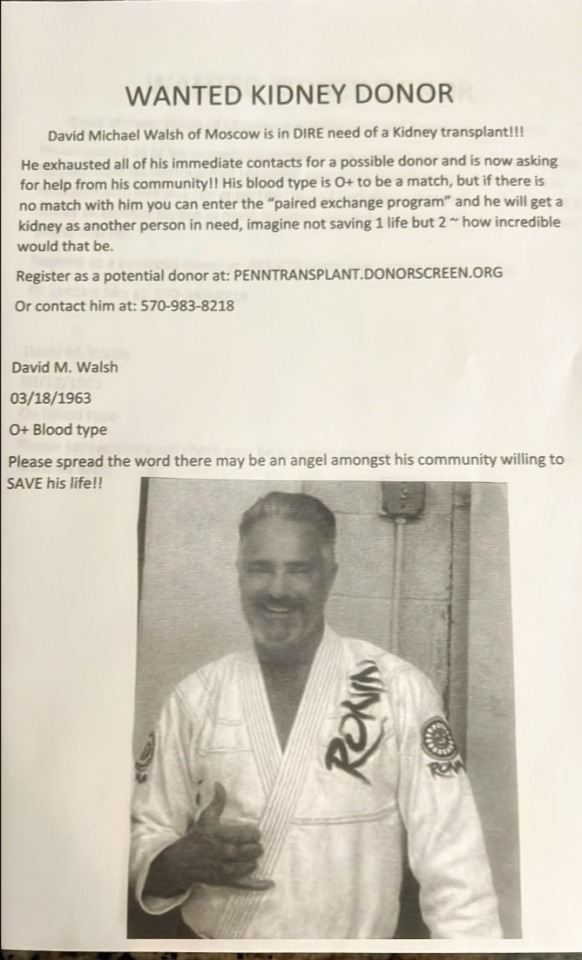
9 notes
·
View notes
Photo
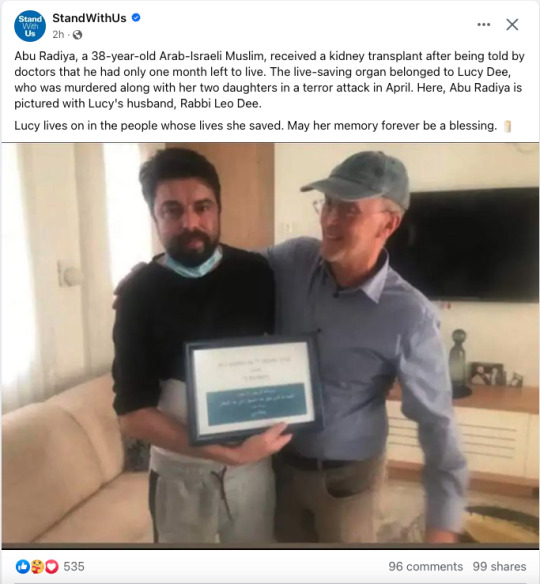
18 notes
·
View notes
Text
Jazmin Evans had been waiting for a new kidney for four years when her hospital revealed shocking news: She should have been put on the transplant list in 2015 instead of 2019 — and a racially biased organ test was to blame.
As upsetting as that notification was, it also was part of an unprecedented move to mitigate the racial inequity. Evans is among more than 14,000 Black kidney transplant candidates so far given credit for lost waiting time, moving them up the priority list for their transplant.
“I remember just reading that letter over and over again,” said Evans, 29, of Philadelphia, who shared the notice in a TikTok video to educate other patients. “How could this happen?”
At issue is a once widely used test that overestimated how well Black people’s kidneys were functioning, making them look healthier than they really were — all because of an automated formula that calculated results for Black and non-Black patients differently. That race-based equation could delay diagnosis of organ failure and evaluation for a transplant, exacerbating other disparities that already make Black patients more at risk of needing a new kidney but less likely to get one.
A few years ago, the National Kidney Foundation and American Society of Nephrology prodded laboratories to switch to race-free equations in calculating kidney function. Then the U.S. organ transplant network ordered hospitals to use only race-neutral test results in adding new patients to the kidney waiting list.
“The immediate question came up: What about the people on the list right now? You can’t just leave them behind,” said Dr. Martha Pavlakis of Boston’s Beth Israel Deaconess Medical Center and former chair of the network’s kidney committee.
Pavlakis calls what happened next an attempt at restorative justice: The transplant network gave hospitals a year to uncover which Black kidney candidates could have qualified for a new kidney sooner if not for the race-based test — and adjust their waiting time to make up for it. That lookback continues for each newly listed Black patient to see if they, too, should have been referred sooner.
Between January 2023 and mid-March, more than 14,300 Black kidney transplant candidates have had their wait times modified, by an average of two years, according to the United Network for Organ Sharing, which runs the transplant system. So far more than 2,800 of them, including Evans, have received a transplant.
But it’s just one example of a larger problem permeating health care. Numerous formulas or “algorithms” used in medical decisions — treatment guidelines, diagnostic tests, risk calculators — adjust the answers according to race or ethnicity in a way that puts people of color at disadvantage.
Given how embedded these equations are in medical software and electronic records, even doctors may not realize how widely they impact care decisions.
“Health equity scholars have been raising alarm bells about the way race has been misused in clinical algorithms for decades,” said Dr. Michelle Morse, New York City’s chief medical officer.
Change is beginning, slowly. No longer are obstetricians supposed to include race in determining the risk of a pregnant woman attempting vaginal birth after a prior C-section. The American Heart Association just removed race from a commonly used calculator of people’s heart disease risk. The American Thoracic Society has urged replacing race-based lung function evaluation.
The kidney saga is unique because of the effort to remedy a past wrong.
“Lots of time when we see health inequities, we just assume there’s nothing we can do about it,” Morse said. “We can make changes to restore faith in the health system and to actually address the unfair and avoidable outcomes that Black people and other people of color face.”
Black Americans are over three times more likely than white people to experience kidney failure. Of the roughly 89,000 people currently on the waiting list for a new kidney, about 30% are Black.
Race isn’t a biological factor like age, sex or weight — it’s a social construct. So how did it make its way into calculations of kidney function?
The eGFR, or estimated glomerular filtration rate, evaluates kidney health based on how quickly a waste compound called creatinine gets filtered from blood. In 1999, an equation used to calculate eGFR was modified to adjust Black people’s results compared to everyone else’s, based on some studies with small numbers of Black patients and a long-ago false theory about differences in creatinine levels. Until recently that meant many lab reports would list two results — one calculated for non-Black patients and another for Black patients that could overestimate kidney function by as much as 16%.
Not every Black kidney candidate was affected. Some may have had kidney failure diagnosed without that test. For others to have a chance at benefitting from UNOS’ mandated lookback, transplant center staff-turned-detectives often worked after hours and weekends, hunting years-old records for a test that, recalculated without the race adjustment, might make the difference.
“You’re reaching out to the nephrologist, their primary care doctors, the dialysis units to get those records,” said Dr. Pooja Singh of Jefferson Health’s transplant institute in Philadelphia, where Evans received her new kidney. “That first patient getting transplanted for us was such a great moment for our program that the work didn’t feel like work after that.”
A high school sports physical first spotted Evans’ kidney disease at age 17. While finishing her master’s degree and beginning to earn her Ph.D. at Temple University, she started dialysis — for nine hours a night while she slept — and was placed on the transplant list.
How long it takes to get a kidney transplant depends on patients’ blood type, medical urgency and a mix of other factors — including how long they’ve spent on the waiting list. Evans was first listed in April 2019. When the Jefferson transplant center unearthed her old lab tests, they found she should have qualified in September 2015.
“Just for context, when I was still an undergrad I should have been on the list,” she said, recalling the anger she felt as she read the letter. What she called “a mind-blowing” credit of 3½ more years waiting also provided “a glimmer of hope” that she’d be offered a matching kidney soon.
Evans got a new kidney on July 4 and is healthy again, and grateful the policy change came in time for her.
“You don’t know if people would be alive today” if it had been enacted earlier, she said. Still, that extra step of “making amends to fix the situation for those that we can — I feel like it’s very important and it’s very necessary if you’re truly wanting to bring more equity and equality into the medical field.”
#us politics#news#ap#2024#the associated press#kidney transplant#racial bias#us healthcare#eGFR#estimated glomerular filtration rate#transplant surgery
4 notes
·
View notes
Text

So I’ve reached out just about everywhere trying to get others to donate to help cover my medical expenses. I’ve gotten some donations, but still haven’t reached my goal as it is much needed to do so. If you click the link it will take you to my go fund me and my story is written out there. Everyone please share this to help me out with these medical bills that have been piling up. Just a 100 dollar donation could get me closer to meeting my goal and most importantly, getting these medical bills payed off. Just a 50 dollar donation could help me with putting fuel in my vehicle to get me back and forth to my appointments as I do have quite a few of those. Nonetheless, anything is always appreciated. Thank you in advance and may God bless you back 100 times whatever you may give.
#gofundme#dialysis#need help#donations#health issues#hospital#please share#medical bills#medical problems#kidney transplant#godisgood#no work#unemployed#disability#thank you#please donate#donate if you can#pls donate#a good cause#nephrology#kidney treatment#kidneyhealth#kidneycare#kidney diseases
12 notes
·
View notes
Text
on donating a kidney
I've been wanting to post about this for a while, but I've been unsure how to start talking about it. It has taken since August, from applying through the National Kidney Registry, to wading through tests to check my health, then tests to double check my match, then waiting for the big day... then it happened... and I sit here, one kidney down, still unsure how to talk about this.

For taking out a whole kidney, a week and a half post-surgery, I feel almost normal, just a bit tired. And still, where to start?
To everyone I've talked to about it so far, everyone has wanted to know "why" and I still don't really have a good drill-down for why. But if I were to write anything about the donation here, I guess explaining why is where to start.
I want to reduce suffering in the world. Kidney failure is no party, and while Dialysis is life saving, it is also hell for those going through it. I'm lucky I'm relatively healthy, and I thought giving my kidney to someone in need would be a good way to reduce even a little suffering. I signed up to donate to anyone who is my best match and in need - which could be... anyone.
So. Uh. Yeah. I have no idea who has my left kidney.
I have been told prior to the surgery that my kidney was destined for New Jersey, which still entertains me greatly - the great land of New Jersey! - but until yesterday I had no other details.
Finally, I got some word - my kidney ended up with a mom, who has two daughters, and her new kidney is going great!
As I read the email giving the update that the kidney was doing well, and mom and daughters were happy, I cried. It was easy to imagine a mom with her two daughters - my mom has myself and my sister, and my brain quickly flashed to all of us together, laughing and playing some silly boardgame. I saw all the energy that my recipient would get back, the potential years beyond dialysis she would have, all the moments she would get with her daughters, and I wept.
If you have been thinking about donating and are in a good place with your health, I really recommend kidney donation. No pressure - it's still a lot of tests, time, and a surgery, but the National Kidney Registry makes it pretty easy, and this feeling of joy... it is pretty incredible.
5 notes
·
View notes
Text
A little life update
Unfortunately the previous kidney was not suitable for my husband because abnormalities… however.. a wonderful lady from church came forward to get tested. God bless her. She wasn’t a match but willing to do a exchange program so hopefully someone else will be a match. I was really bummed she wasn’t a match, and the fact my husband has high antibodies makes it harder to find a match because his body could reject the kidney.
Continue to help us pray, please. I know in God’s time this need will be met. But, I’ll be honest it’s not easy.
5 notes
·
View notes
Text



Who are these for? Like, I'm not judging but I can't fathom what someone gets out of this.
10 notes
·
View notes